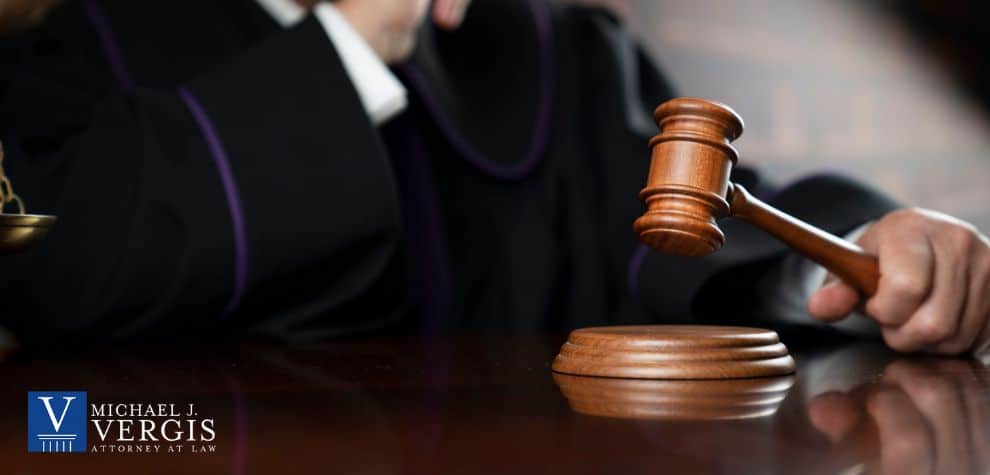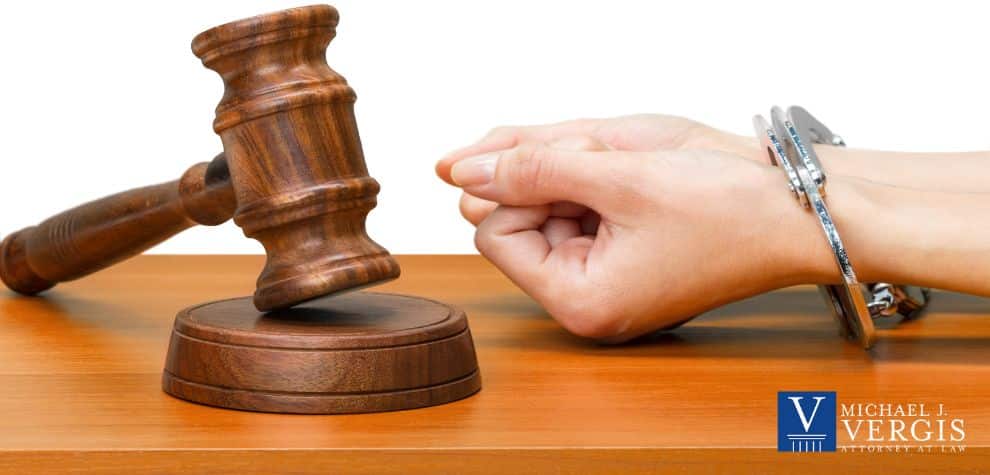One lapse in judgment can result in thousands of dollars in fines, years in prison, and a permanent stain on your record. Louisiana has a three-year recidivism rate of 34%, which means 34% of offenders are re-incarcerated within three years of release. In an effort to combat this, Louisiana has an option for deferred adjudication.
Deferred adjudication in Louisiana has a set of complex criteria to meet. A qualified lawyer can help you explore all your options after being charged with a criminal offense. At the Law Offices of Michael J. Vergis, you can trust our skilled attorney to craft the best defense strategy for you. Schedule your free case evaluation today by calling (318) 698-3724.
Deferred Adjudication Meaning
Deferred adjudication is essentially a delay in judgment. A deferred adjudication gives someone the chance to prove to the judge that they have changed their ways. It’s like betting on yourself. If you complete all the requirements for your deferred adjudication, you can have the conviction removed from your record. But if you fail to meet the requirements, you may receive a harsher punishment for the initial crime.
Deferred Adjudication vs. Probation
Deferred adjudication is essentially a type of probation. Unlike straight probation, this does not go on your permanent record after successful completion. If you are given the option of deferred adjudication probation, you will often have to meet the same requirements as probation. This includes meeting with your probation officer and not committing other criminal offenses. Community service and rehabilitation classes could also be part of the requirements. Deferred adjudication can mean that instead of serving time in prison, you are released back into your community. This is also known as community supervision.
Why Should I Choose Deferred Adjudication Over Probation?
In some cases, deferred adjudication is not the best option for someone convicted of a crime. If you are not confident that you can meet the requirements of deferred adjudication probation, you shouldn’t pursue this option. Failing to meet the requirements of deferred adjudication outlined by a judge can result in a more severe sentence. Probation may stay on your criminal record, but probation over jail time is an easy choice to make.

Does Louisiana Have Deferred Adjudication?
Deferred adjudication has certain requirements in Louisiana. In states like Louisiana and Texas, criminal law regarding deferred adjudication can be very complicated. This is why you need an experienced Bossier criminal defense lawyer like Michael J. Vergis on your side.
When your attorney advises you to plead guilty to a crime, it can be easy to think they’re not actually fighting for you. This is a misconception. Sometimes when a defendant pleads guilty or nolo contendere (no contest), they can get a much better deal with the prosecution team. If the defendant pleads not guilty and is later found guilty in a jury trial, they are subject to the maximum punishment for their criminal offense. With an initial guilty plea, you can avoid a long, often publicized trial and significantly harsher penalties.
LA CCRP 893
Louisiana Code of Criminal Procedure 893 (LA CCRP 893) outlines the requirements for deferred adjudication in a felony case. The best interest of both the public and the defendant is the most important requirement of a delayed adjudication.
What Offenses Are Eligible for Deferred Adjudication?
Under Louisiana law, some crimes are not eligible for deferred adjudication. This includes violent offenses, drug trafficking offenses, and sex offenses involving children. Additionally, if the felony charge involves family violence (aka domestic violence), the crime cannot be expunged or sealed from your record. Many other misdemeanors and felonies are eligible for deferred adjudication. To learn more about your own offense and determine if you may be eligible for deferred sentences, speak with experienced criminal defense attorney Michael J. Vergis in a free initial consultation.
Do I Qualify for Deferred Adjudication?
First-time offenders aren’t the only people that can qualify for deferred adjudication. Criminal history, however, does have a large impact on whether or not you are eligible for deferred adjudication. Someone with a few misdemeanor convictions and up to two felony convictions can be eligible for deferred adjudication. In other cases, a single felony conviction can disqualify you from being eligible. The judge in your case will have to make the final decision.

Is Deferred Adjudication a Criminal Conviction?
Deferred adjudication is a punishment option that some offenders can pick over prison time, if provided with the opportunity. A deferred adjudication prevents a conviction from going on your record, but the criminal charge may still appear. Successful completion of deferred adjudication typically means you can proceed with your life as normal with no criminal record. In some cases, a deferred adjudication can still appear on your record. Federal law considers deferred adjudication a conviction, which can impact some gun laws.
How Long Does Adjudication Take?
The waiting period for deferred adjudication varies based on several factors. Your criminal records, the severity of the crime, the nature of the crime, and the specific criminal offense all play a part in the decision. A deferred sentence conviction can take a relatively shorter amount of time than an average conviction. This is because it’s a plea deal versus a full jury trial. The requirements for deferred adjudication can last up to eight years.
What Happens When You Complete Deferred Adjudication?
In many cases, your record stays clean if you successfully complete all the requirements for your deferred adjudication. These requirements can be as simple as attending a prevention or rehabilitation course. When you complete deferred adjudication, you may be able to have the criminal charges expunged from your record.

What Happens When You Violate Deferred Adjudication?
When a defendant fails to successfully complete the requirements for a deferred adjudication, the conviction can appear on their record. The Louisiana probation sentence may be extended by up to two years to allow the defendant another chance at proving they are rehabilitated. This is usually up to the judge’s discretion; however, repeat violations usually involve a harsher sentence.
Contact Bossier City Criminal Defense Attorney Michael J. Vergis Today
An arrest can be scary, but a single mistake shouldn’t mean you have to spend months or years away from your family. A felony conviction, and in some cases, even a misdemeanor conviction, can negatively impact every aspect of your life for decades to come. A qualified defense team can craft the best strategy to get you back to everyday life. The legal defense team at the Law Offices of Michael J. Vergis will fight aggressively for your freedom and work relentlessly toward a positive outcome.
Michael J. Vergis has over two decades of experience serving the citizens of the Shreveport/Bossier City area. Rather than depend on an overworked public defender, trust the knowledgeable criminal defense attorneys at the Law Offices of Michael J. Vergis. Call us at (318) 698-3724 to schedule a free consultation on your criminal case and begin your attorney-client relationship today.



